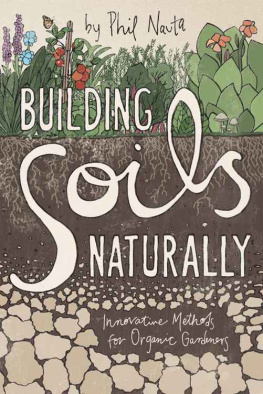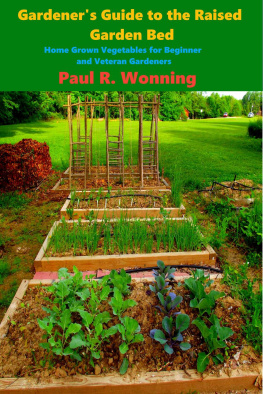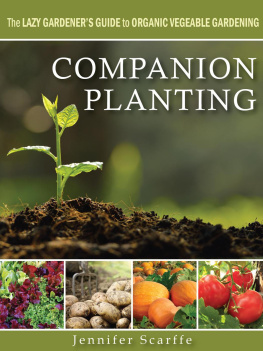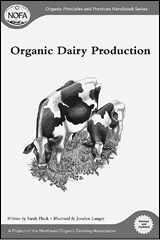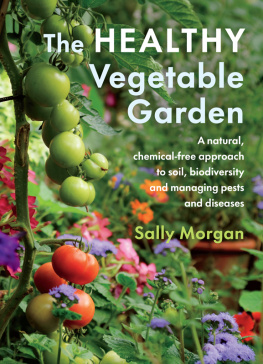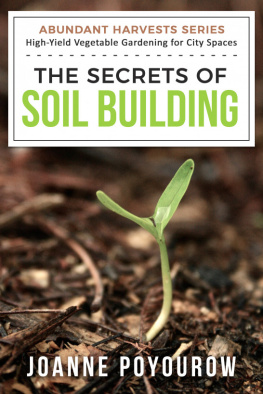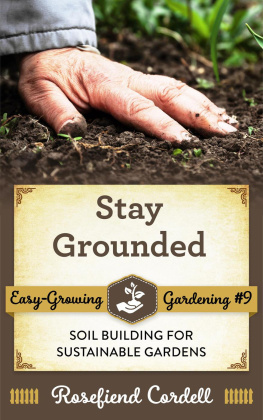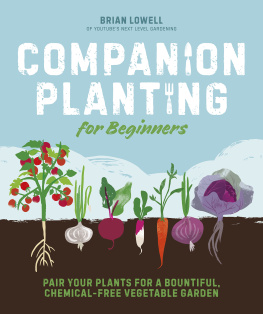Phil Nauta grew up working for his parents in their garden center. He maintained the nursery stock in the yard and did some of the landscaping. He was also in charge of maintaining their 9-hole, par-3 golf course. He continued to do this through university while he obtained his business degree and commercial pilots license. Not content with flying, he went on to complete a certificate in Organic Landscape Management from Gaia College.
Since then, he has played many roles in the organic gardening world. He started a gardening business called Only Organic, later taken over by his sister. He received his Permaculture Design Certificate and completed a certificate in Sustainable Building and Design from Yestermorrow Design Build School. He became a Certified Organic Land Care Professional through SOUL, The Society For Organic Urban Land Care. He later served as SOUL Treasurer for three years and continues to maintain their website. He started The Organic Gardeners Pantry to sell high quality organic fertilizers. He has taught courses for Gaia College and helped put together their cutting edge online learning environment.
Phil works with his wife Heather, a Registered Holistic Nutritionist, to help people improve their health and the health of their gardens and the planet. When hes not in the garden, hes in front of the computer trying to get the word out, or at the piano, pretending hes Duke Ellington.
Introduction
One of the most exciting gardening topics Ive taught in a classroom setting is on the microbial inoculants called Effective Microorganisms (EM) and compost tea. The best part is when the students each take a taste from a bottle of food-grade microorganisms. EM was initially concocted for agriculture, but of course it wasnt long before some people had to try drinking it themselves. Its a liquid with many of the same microbes that are in yogurt, wine and bread, although not quite as tasty.
Actually, some people love the taste and some dont, but whats fascinating is how it can drastically improve your health. There were often a few students who werent feeling up to par in class, and usually at least one of them would start to feel better just a few minutes or even seconds after drinking only a tablespoon of probiotic microorganisms. Sometimes the improvement would be so great that they were visibly cured. Thats the power of microbes, which also have many beneficial roles in the garden. Youll be reading a lot about them in the pages that follow.
The lessons in this book apply to both ornamental and food gardens. Many of us are becoming more and more interested in growing food, so my examples often center around that. We know that most produce from the grocery store doesnt have the nutrition it used to, and were excited to grow our own nutrient-dense fruits, vegetables, grains, nuts and seeds even mushrooms, which are fungi.
The Romans reportedly used to salt the land of their enemies in order to create soil that couldnt grow healthy crops. Now, many farmers and gardeners do something similar to their own soil with chemical salt fertilizers and pesticides. In the last half of the 20th century, pesticide use increased by 1,000%, yet the percentage of crop loss due to insects nearly doubled. Growing food has become a war against nature. Nature is seen as flawed, and our goal is total domination.
During this same period, the majority of our topsoil has been lost. We know that the destiny of civilizations in the past that destroyed their soil has been collapse. Thats why Roosevelt said The Nation that destroys its soil destroys itself. The majority of our groundwater, lakes and streams are also polluted, along with our air.
Fortunately, the earth will eventually repair itself, and we can take action right now in our own backyards. We can vastly improve our own soil and grow high-quality food. We need to, because although agriculture has drastically increased the amount of food it can grow during the last 60 years, that food has less nutrition. Some research shows that the nutrients in our food are down 60 to 70% on average.
Our grains, for example, such as alfalfa, wheat, oats and spelt, are supposed to have solid stems. Tell this to the farmers in your area and they will probably look at you rather suspiciously. All of their grains have hollow stems. Theyve never seen grain with a solid stem, so they dont know thats how its supposed to be. Im not picking on farmers its just an indication of how long our food has been deficient. Most people dont remember how food really should look and taste.
You simply cant learn how to grow healthy plants in most horticulture and agriculture universities and colleges. You can learn how to grow plants that look good and how to kill pests with chemicals, but you cant learn to grow healthy plants because weve forgotten what that means. Weve forgotten that healthy plants dont get attacked by predators in the first place, that nutrient-dense foods dont rot even when left on the counter for months, and that weeds cant possibly take over a lawn thats healthy. Weve come to think of large crop losses to plant predators as being natural, but this is simply not natural at the scale in which were seeing it happen today.

